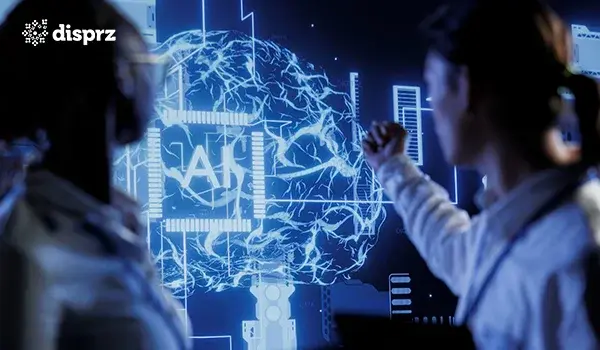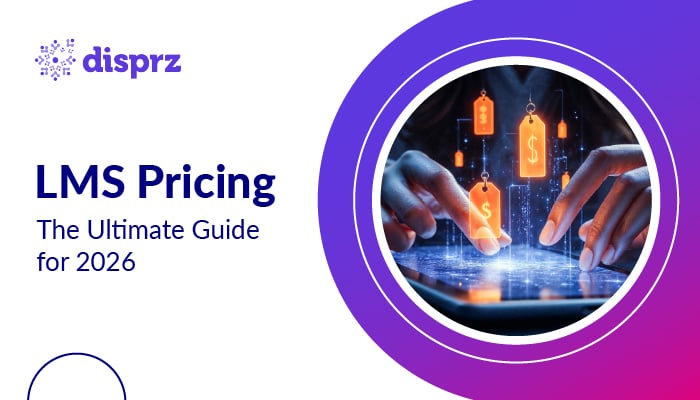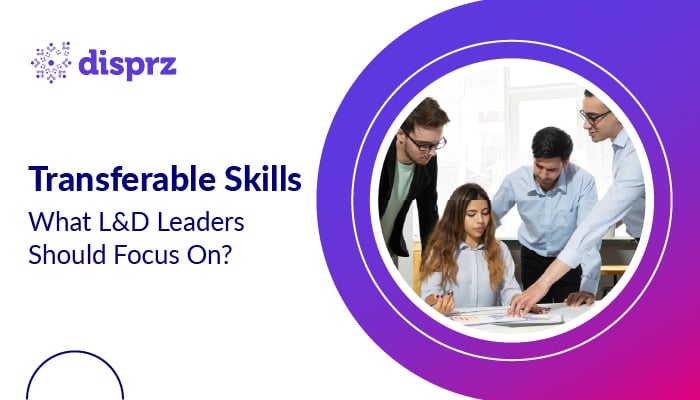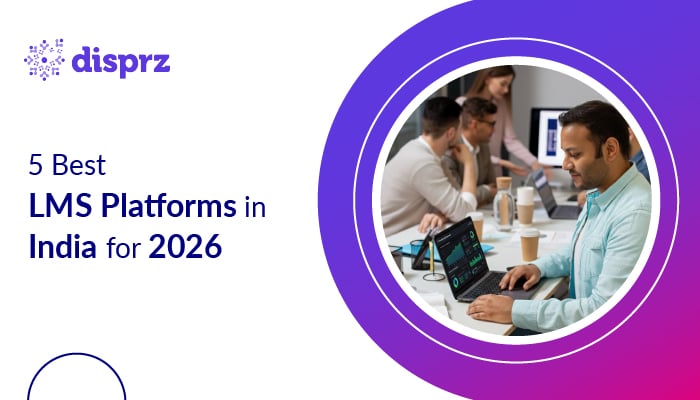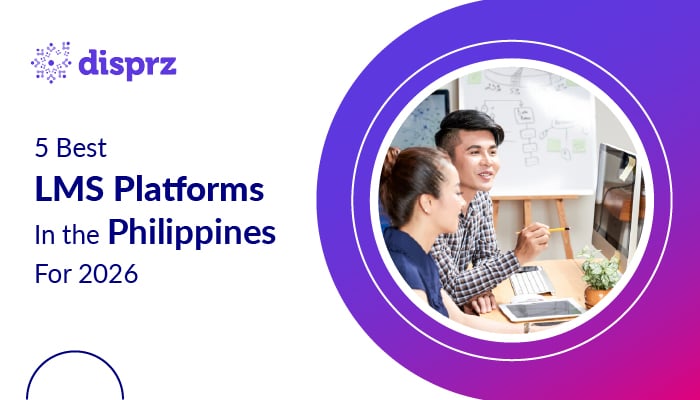Small and medium-sized enterprises (SMEs) are the backbone of Indonesia’s economy, contributing more than 60% to the GDP and employing over 97% of the workforce. As the Indonesian workforce evolves in the digital era, the need for continuous SME upskilling has become critical. However, traditional learning approaches often fall short in addressing the fast-changing demands of today’s business environment. This is where AI in SME learning Indonesia plays a transformative role, enabling adaptive, personalized, and scalable learning solutions.
Here we explore why traditional SME training no longer works, what adaptive AI-powered learning means, and how platforms like Disprz empower Indonesian SMEs to upskill their people through intelligent, data-driven approaches. We will also highlight practical benefits, real-world use cases, and the long-term strategic value of embedding adaptive learning into the daily workflows of SMEs across Indonesia.
Why Traditional SME Training No Longer Works
Traditional corporate training, often built on one-size-fits-all classroom or e-learning modules, faces several challenges in Indonesia’s SME ecosystem. Many SMEs operate in fast-changing sectors where skill requirements shift rapidly, and generic training cannot keep pace. In addition, infrastructure limitations, cultural diversity across regions, and the need to train a largely mobile workforce make traditional methods increasingly impractical.
With limited budgets and resources, SMEs cannot afford ineffective approaches that waste time and fail to produce measurable outcomes. These realities underscore the need for smarter, adaptive solutions that can deliver relevant, personalized, and scalable training experiences:
-
Generic Content: SMEs have diverse skill needs, yet most training programs provide standardized materials that fail to meet specific workforce requirements.
-
Limited Engagement: Static content often results in poor learner engagement, leading to low completion rates.
-
Scalability Issues: As SMEs grow, replicating in-person training across multiple locations becomes costly and logistically challenging.
-
Time Constraints: SME employees juggle multiple roles, leaving little time for lengthy training sessions.
-
Lack of Real-Time Feedback: Without continuous feedback, learners struggle to track their progress or understand their weaknesses.
As a result, traditional training fails to keep pace with the rapid digitalization and industry transformation underway in Indonesia.
What Is Adaptive AI-Powered Learning?
Adaptive AI-powered learning leverages AI algorithms to personalize the learning experience based on each individual’s knowledge level, learning speed, and career goals. Instead of pushing the same content to every learner, adaptive systems create personalized pathways that evolve dynamically.
Key elements of adaptive learning include:
-
Personalization: Learners receive tailored content based on their role, skills, and progress.
-
Data-Driven Insights: AI analyzes learner behavior to recommend relevant modules.
-
Continuous Adaptation: As learners advance, the system adjusts to their evolving needs.
-
Scalability: Adaptive platforms deliver consistent learning experiences to SMEs of any size.
This approach ensures that SMEs can maximize learning effectiveness while saving time and resources. In addition, it lays the foundation for continuous workforce development by helping employees stay motivated, track their progress, and adapt quickly to new business needs.
For Indonesian SMEs, this means they can maintain a competitive edge while ensuring that learning investments translate into practical skills and measurable impact on business performance. Over time, adaptive AI transforms training from a support function into a strategic advantage.
How Adaptive AI Solves SME Learning Challenges
Adaptive AI-powered learning addresses the pressing challenges faced by SMEs in Indonesia. Beyond simply filling skill gaps, it also enables organizations to create smarter learning ecosystems where every employee’s journey is tailored to their role and growth trajectory.
By intelligently analyzing performance and preferences, adaptive platforms can deliver precise interventions at the right time, making training more impactful and efficient.
This adaptive nature makes learning a continuous, evolving process rather than a one-time event, driving lasting change and capability development across the SME sector.

-
Time Efficiency: Employees only learn what they need, avoiding repetitive or irrelevant content.
-
Improved Engagement: Interactive, mobile-first platforms boost learner motivation.
-
Cost-Effectiveness: Digital adaptive platforms reduce the need for physical trainers and travel costs.
-
Real-Time Progress Tracking: Managers receive insights into skill gaps and employee progress.
-
Workforce Readiness: Adaptive learning ensures employees are equipped with the right skills for current and future roles.
By solving these challenges, SMEs can build agile, future-ready teams capable of driving business growth.
Use Cases of Adaptive Learning in Indonesian SMEs
Adaptive AI learning has numerous applications across industries in Indonesia. It is not confined to one type of business or sector, but can be applied flexibly depending on workforce needs and organizational maturity.
From service-oriented enterprises to manufacturing units, adaptive platforms can bridge critical skill gaps, provide role-based training, and deliver measurable outcomes. This versatility is especially valuable for SMEs that often operate with limited resources and need scalable solutions that adjust to both local and global market demands.

-
Retail SMEs: Training frontline staff on product knowledge, customer service, and sales skills through mobile learning.
-
Manufacturing SMEs: Delivering adaptive safety training and upskilling workers on new machinery.
-
Financial Services SMEs: Personalizing compliance training, ensuring employees meet regulatory requirements.
-
Tech Startups: Upskilling developers with AI-driven personalized pathways in coding and emerging technologies.
- MSMEs in Rural Areas: Providing mobile-first, low-bandwidth training accessible to workers with limited internet infrastructure.
These real-world examples show how adaptive learning empowers SMEs to overcome resource and location barriers.
6 Key Benefits for Indonesian SMEs
Implementing adaptive AI learning offers significant benefits for SMEs in Indonesia. Beyond immediate improvements in engagement and efficiency, it also fosters a culture of continuous learning, collaboration, and innovation within organizations. Adaptive platforms empower SMEs to align learning with strategic goals, ensuring that training translates into measurable business outcomes.
As Indonesia moves deeper into digital transformation, these benefits will play a critical role in helping SMEs remain competitive, attract talent, and expand globally.
In short, adaptive learning is not just a training tool but a long-term growth enabler for SMEs in Indonesia:
-
Personalized Pathways: Each learner receives customized training aligned with their role.
-
Scalable Solutions: SMEs can easily extend training to hundreds of employees without scaling costs linearly.
-
Enhanced Productivity: Employees spend less time learning irrelevant content, focusing instead on job-relevant skills.
-
Future-Ready Workforce: Continuous learning prepares employees for digital transformation and new industry demands.
-
Employee Retention: Providing growth opportunities improves satisfaction and reduces attrition.
-
Accessibility: Mobile-first design ensures inclusivity, even in remote regions of Indonesia.
How Disprz Supports Adaptive AI Learning for SMEs
Disprz is at the forefront of enabling adaptive learning for SMEs in Indonesia. With its AI-powered Learning Experience Platform (LXP), Disprz empowers SMEs to not only streamline training but also measure its business impact.
Through real-time analytics, content recommendations, and role-based journeys, SMEs can ensure that every employee receives the right training at the right time. This results in greater efficiency, stronger employee engagement, and tangible business growth.
Disprz empowers SMEs to:
-
Build personalized pathways for employees using AI-driven skill mapping.
-
Provide mobile learning experiences for on-the-go accessibility.
-
Use AI algorithms to recommend training aligned with business goals.
-
Integrate with HR systems to track progress, performance, and skill gaps.
-
Scale learning programs for both small teams and larger SME workforces.
By aligning learning with business outcomes, Disprz helps SMEs transform their employees into future-ready talent.
Check how an LXP supports adaptive learning
Conclusion
Indonesia’s SME sector is rapidly expanding, and with it comes the urgent need for continuous SME upskilling. Traditional training models no longer meet the diverse, evolving needs of the Indonesian workforce. Adaptive AI-powered learning offers a scalable, cost-effective, and personalized solution, helping SMEs equip employees with the skills needed to thrive in a digital-first economy.
With platforms like Disprz, Indonesian SMEs can embrace this transformation, ensuring they not only survive but excel in the competitive global marketplace. Beyond survival and growth, adaptive AI also enables SMEs to stay competitive on a regional and global scale, preparing them to respond faster to market shifts, industry disruptions, and evolving consumer expectations. By combining AI-driven insights with mobile learning delivery, SMEs can future-proof their talent, enhance innovation, and build resilient business models that align with Indonesia’s broader digital transformation agenda.
FAQs
1) How does AI improve corporate training?
AI improves corporate training by using AI algorithms to personalize learning, track performance, and provide real-time feedback. It ensures employees engage with relevant content, reducing wasted time and improving outcomes. Additionally, AI identifies skill gaps, recommends targeted courses, and simulates real-world scenarios, creating immersive, adaptive learning journeys that boost productivity and retention.
2) What is adaptive learning in SMEs?
Adaptive learning in SMEs refers to training methods that adjust dynamically to each learner’s skills, knowledge, and learning pace. It creates personalized pathways that help employees learn efficiently, increasing productivity and engagement. By leveraging AI, adaptive learning continuously evaluates progress and modifies content delivery, ensuring employees build confidence, achieve mastery, and grow faster.
3) Can small businesses in Indonesia afford AI-based learning?
Yes. With scalable, subscription-based models, even MSMEs in Indonesia can adopt AI-powered learning platforms. Mobile-first and cloud-based solutions make adaptive learning cost-effective and accessible. Moreover, many providers offer flexible pricing, regional language support, and easy integration, making advanced learning technologies achievable for SMEs without heavy upfront infrastructure or IT investments.



